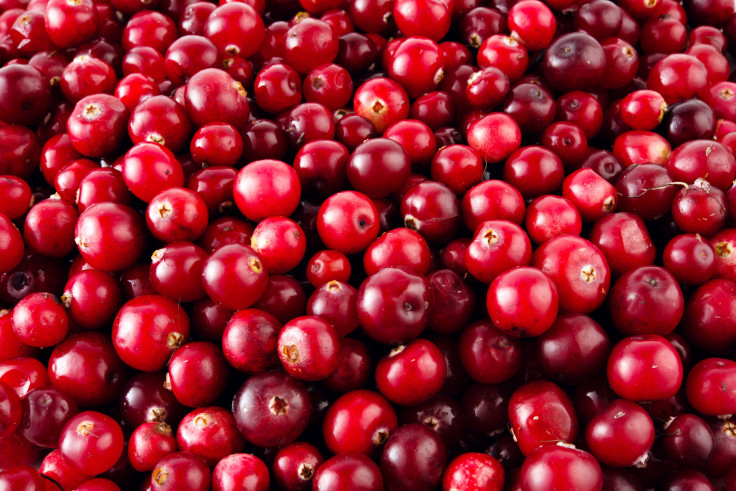How To Live Forever: Cranberries Extend Longevity At Any Age

You simply can’t go wrong with cranberries. In a study published in Experimental Gerontology, researchers report that cranberry supplementation reduces cancer-causing oxidative damage and oxidative stress response in Drosophila fruit flies. The health benefits of the supplement were significant enough to lower age-specific mortality rate and extend the lifespan of the fly during any of the three life stages of the insect; health, transition, and senescence. In humans, these stages equate to young adulthood, middle age, and old age.
“The long-lasting effect of cranberry supplementation is probably due to its ability to change signaling pathways and epigenetic status,” explained lead-author Yaning Sun of the National Institute on Aging in Baltimore and colleagues. The authors of the study were referring to the sensitive mechanisms that control how genes get expressed. “Our findings suggest that cranberry as an abundant and popular fruit is a potentially viable option for aging interventions in humans of different ages.”
The three life stages in question reflect distinct changes that occur as we age. At the molecular level, these adjustments involve gene expression and oxidative damage to important molecules in our body. At the physiological level, these stages pertain to how our cells become less able to handle metabolism and stress. Finally, the behavioral and cognitive aspects to aging are associated with a decline in locomotor activity, learning and memory.
“The complex nature of life stages poses a major challenge to develop effective interventions for promoting healthspan and lifespan,” the study authors wrote. “Any intervention starting in young adults can be costly and impractical to implement in humans. Moreover, it may miss interventions effective in certain life stages.”
For example, curcumin — a substance in the popular South Asian spice turmeric — was discovered to be beneficial when implemented early in life (the health stage) but harmful if given late in late life (the transition or senescence stage). Conversely, the molecule sodium butyrate was shown to have the opposite effect by increasing lifespan when given during later stages of the Drosophila, but not earlier.
In the current study, researchers fed a high-sugar diet supplemented with 2 percent cranberry extract to groups of 100 to 200 flies that were sequestered in separate vials. Flies that were given the cranberry supplement during the health stage had a 25 percent longer lifespan than flies that didn’t receive any cranberry in their diet. Flies in the transition and senescence phases of their lives also benefited from having cranberry in their diet, living 30 percent longer than controls.
Overall, the study was the first to show the beneficial effects of cranberry supplement regardless of age. “To our knowledge, cranberry is the first case showing that a pharmaceutical or nutraceutical can promote longevity when administered during any of the three distinct life stages,” the authors concluded. “Future studies are warranted to determine how cranberry extends lifespan during different life stages. Such studies are important because different mechanisms may be involved during different life stages.”
Source: Sun Y. et al. Lifespan extension by cranberry supplementation partially requires SOD2 and is life stage independent. Experimental Gerontology, Feb. 2014, Vol. 50, 57-63.



























